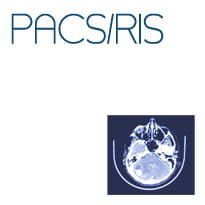Trusts have been advised to be “careful” when buying picture archiving and communication systems and radiology information systems from framework deals.
Speaking at the spring meeting of the UK Imaging Informatics Group, Tony Corkett, director of healthcare at the Amor Group, said trusts needed to think carefully before entering the market as the contracts drawn up by the National Programme for IT in the NHS expire over the next three years.
Trusts will be able to purchase new PACS and RIS solutions by issuing a tender in the Official Journal of the European Union; and a number have already done this, often in collaboration with other local providers.
Alternatively, they will be able to use a national framework being set-up by NHS Supply Chain.
Corkett said: “These are not simple systems to buy. They are highly complex and highly differentiated. When it comes to complex systems, what you are looking for is unique to your particular organisation, geography and time scale – and to the view of your finance director.
“In an OJEU process you’re running it, you’re dictating it and you’re specifying it. A framework that’s been done by the NHS is an amalgamation of lots of different ideas rather than what you specifically require as trusts.”
NHS Supply Chain launched a procurement for a single national framework for PACS/RIS and associated services in January.
At the time, Professor Erika Denton, national clinical director for imaging, said it would be “beneficial to have a single national framework for the procurement of PACS and RIS solutions.”
However, Crockett argued the OJEU route was the better option for trusts when outlining nine key issues for them to consider; time, flexibility, costs, terms and conditions, negotiation, ease of process, local management, supplier engagement and complexity of system.
On the other hand, he also stressed the pitfalls of the OJEU process, acknowledging that this option can often be challenging and requires skills, experience and time to make it a success.
“The last thing you want is to turn up to an OJEU with a blank piece of paper. The NHS has done this process a load of times, so use it to tailor it to your specific local needs,” said Corkett.
Dr Neelam Dugar, chairman of the group, said there was support available for trusts since, despite its drawbacks, the national programme had done good work on PACS/RIS specifications.
“The local service provider programme brought the entire country together for the wrong reasons – but we got together and worked through the community the functional specification,” she said.
Dr Dugar stressed that trusts also needed to insist that suppliers used open standards when procuring new systems, to get control of their data, and to have an exit strategy in place, so they could move suppliers more easily in future, if they wanted to.
She said she was “optimistic that we will see a better relationship between NHS trusts and PACS vendors in the future with regards to an exit strategy.”
Dr Dave Harvey of IHE-UK also spoke at the event, and advised trusts to use the organisation’s integration profiles, while the supplier co-chair of IHE-UK, Malcolm Newbury, said this would potentially cut a significant amount of cost from the procurement process.
“The over-centralisation of purchasing has created an inflation in the scope of contracts. Trusts must retain control of the scope of the project,” Newbury said.
He also warned against the “huge trend” for trusts to outsource IT skills, arguing that although this was being centrally mandated as a way of reducing ‘back office’ costs, it was leading to a “dumbing down” of trust’s “customer intelligence."

The UK Imaging Informatics Group will be holding its autumn meeting at EHI Live 2012, in Birmingham on 6-7 November.
Registration has just opened for the conference, show and popular feature areas, including the best practice showcase and open source skunkworks.

